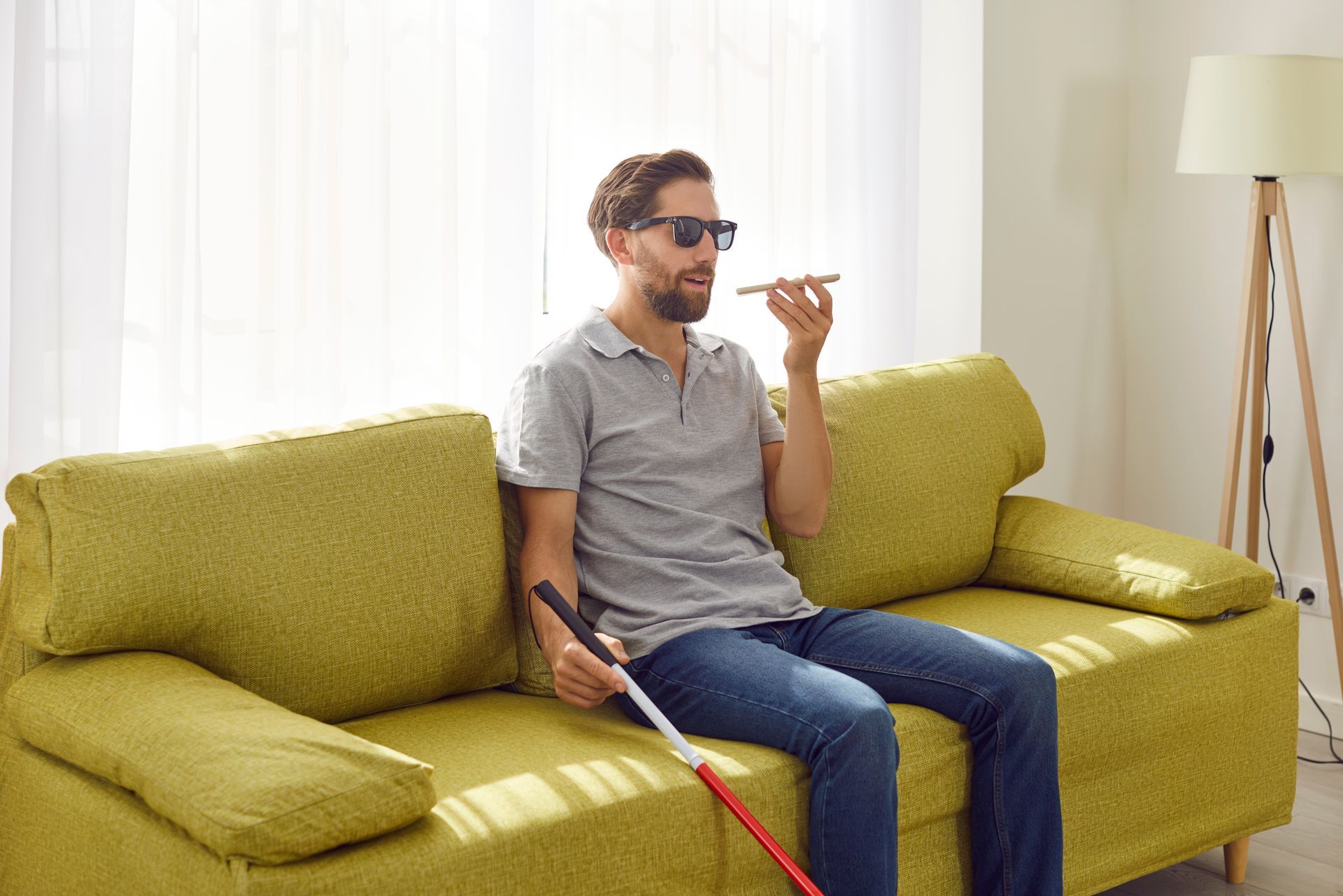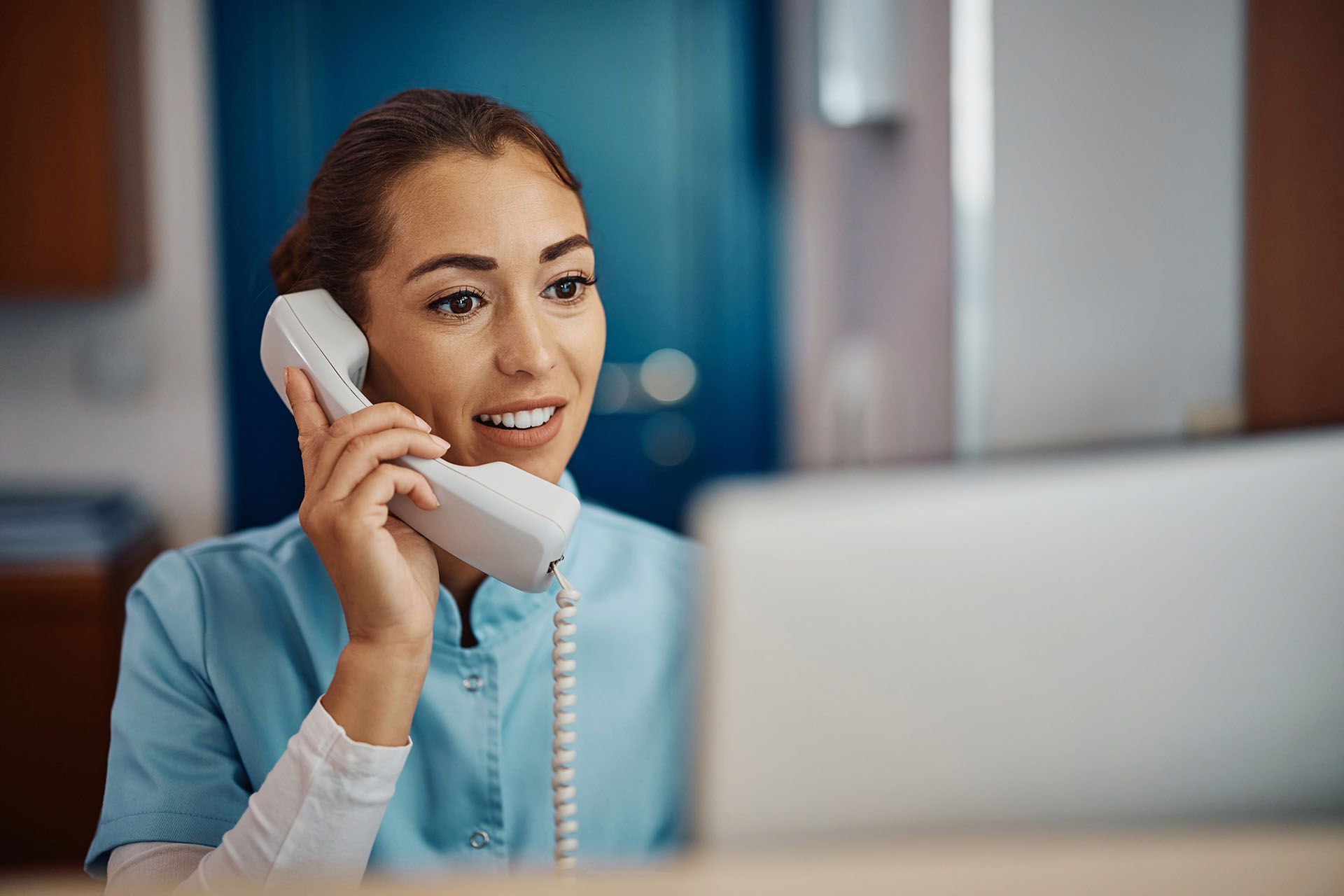INS LifeGuard
Seeing Safety: How Personal Alarms Empower the Visually Impaired

In Australia, over half a million people live with blindness or vision impairment, with the majority of those affected being over 65. Among these, more than 66,000 Australians are classified as blind. These figures highlight the need to address the unique safety needs of the visually impaired.
Vision impairment can greatly affect daily living and increase the risk of accidents and emergencies. In this context, personal alarms provide a reliable safety net, offering peace of mind and fostering independence.
This blog explores the impact of vision impairment, the types of visual impairments, and how personal alarms like those from INS LifeGuard can be a game-changer for people with vision loss.
What Is Visual Impairment?
Visual impairment refers to a significant loss of vision that cannot be corrected with standard glasses, contact lenses, medication, or surgery. It can range from mild vision loss to complete blindness.
Vision impairment can impact a person’s ability to perform everyday tasks, which may affect their independence and quality of life.
For many, this loss of vision can lead to a heightened sense of vulnerability, especially in unfamiliar or potentially dangerous situations.
Types of Visual Impairment
Visual impairment varies widely in its forms and severity, affecting each person differently. Understanding the types of vision loss is key to customising solutions for safety and independence.
1. Partial Vision Loss
Partial vision loss includes conditions where the vision is reduced but not entirely lost. This category can include:
Low Vision
This affects the ability to see detail, read, or perform tasks that require sharp vision, even with corrective lenses.
Peripheral Vision Loss
Affects the outer edges of the field of vision, making it difficult to see objects or hazards to the side without turning the head.
2. Blindness
Blindness is a total lack of vision or a condition where an individual has little to no functional vision:
Legal Blindness
Defined by specific criteria regarding visual acuity and field of vision. People who are legally blind may have some vision but are unable to perform most tasks without significant assistance.
Total Blindness
A complete lack of light perception and vision.
The Challenges Faced by the Visually Impaired
Individuals with visual impairment often face several challenges that greatly impact their ability to live safely and independently.
Navigational Difficulties
Moving safely within the home and navigating your way through public spaces can be very challenging with impaired vision or without sight. This increases the risk of accidents like trips, falls, or bumping into objects.
Recognising Hazards
It can be difficult to detect everyday hazards such as uneven surfaces, steps, or oncoming traffic. This can make it difficult to navigate unfamiliar environments and avoid potential accidents.
Access to Assistance
In emergencies, visually impaired individuals may struggle to quickly locate a phone or identify emergency buttons, which can delay access to help.
How Personal Alarms Empower the Visually Impaired
INS LifeGuard specialises in personal alarm solutions tailored to diverse needs. Our in-home personal alarms come with a waterproof, wearable transmitter that can be worn as a pendant or on the wrist, featuring a raised, tactile button for easy use. With our innovative INS LifeGuardian® app, you can also turn your mobile device into a personal alarm. Available for Android, iPhone, and integrated with the Apple Watch, this comprehensive health and safety app is designed to enhance safety and independence, especially for individuals with visual impairments. It combines advanced technology with 24/7 nurse support, offering invaluable assistance.
Here’s how the features of INS LifeGuardian® can be very beneficial for visually impaired users:
1. Immediate Access to Help
People with vision impairments may struggle to locate and use a phone in an emergency. With the INS LifeGuardian® app, help is just a tap or voice command away. Installed on your smartphone, and integrated with your Apple Watch if you have one, the app connects you directly to qualified nurses who can assess the situation and contact emergency services if needed. This immediate access to help is crucial in emergencies where every second counts.
2. Fall Detection and Prevention
Falls are a significant risk for the visually impaired, particularly among the elderly. The advanced fall detection technology of INS LifeGuardian® automatically alerts our response centre if a fall is detected. This ensures that help is on the way, even if the user is unable to communicate or press a button. Additionally, the app monitors gait and movement patterns to detect an increased risk of falls, allowing for proactive measures to prevent accidents.
3. GPS Tracking and Geofence Alerts
For visually impaired users navigating the outdoors, the INS LifeGuardian® app’s GPS tracking and geofence alerts offer extra security. The nurse at INS LifeGuard can locate you if necessary, while carers and loved ones receive notifications if you exit a predefined safe zone. This feature is especially valuable for individuals with both vision impairment and cognitive challenges, like dementia, who may be at risk of wandering.
4. Voice Activation and Silent Alarms
INS LifeGuardian® is equipped with a voice activation feature that allows users to set a custom Siri phrase, like “Hey Siri, send help,” to trigger an alarm. This is especially useful for visually impaired individuals who might struggle to locate a button in an emergency. The silent alarm function also allows users to discreetly summon help without alerting others nearby.
5. Safety Check-Ins and Health Monitoring
The INS LifeGuardian® app’s safety check-in feature allows users to set timers for regular check-ins, ensuring that someone is notified if a check-in is missed. This is ideal for visually impaired individuals who may need extra monitoring during daily activities or while traveling. When integrated with the Apple Watch, the app tracks health metrics such as heart rate and activity levels, offering valuable insights and alerts for potential health issues that might otherwise go unnoticed.
6. Peace of Mind for Carers and Families
The INS LifeGuardian® app empowers visually impaired users while providing peace of mind for their carers and family. Knowing that their loved one has 24/7 access to immediate assistance alleviates anxiety and reduces the need for constant supervision. With features that can be really helpful for those with visual impairments, INS LifeGuardian® ensures safety and independence are never compromised.
Understanding Visual Impairment: A Brief Guide to Causes and Solutions
Our "Understanding Visual Impairment: A Brief Guide to Causes and Solutions" is made to help you or your loved ones live life with vision loss more safely and confidently. This guide briefly covers the various causes of visual impairment and offers practical advice on the best support aids and assistive technologies available. Download your free guide today to learn more about managing visual impairment effectively.

Real-Life Scenarios Where Personal Alarms Can Make a Difference
Scenario 1: Fall in the Home
Moving safely within the home and navigating your way through public spaces can be very challenging with impaired vision or without sight. This increases the risk of accidents like trips, falls, or bumping into objects.
Scenario 2: Getting Lost Outside
A visually impaired individual might become disoriented while walking in their neighbourhood. A GPS-enabled personal alarm can alert a caregiver or family member, who can then assist in guiding the person back to safety or pick them up at their location.
Scenario 3: Medical Emergency
If a person with vision impairment experiences a sudden medical issue like a severe allergic reaction or heart problem, they might struggle to find and use a phone. With a personal alarm, they can instantly connect with a nurse who can provide instructions or dispatch emergency services.
Takeaway
For visually impaired individuals, safety is a constant concern. INS LifeGuard’s
reliable medical alarms bridge the gap between independence and security by offering immediate access to help whenever it’s needed. With features that are helpful for different types of health conditions, our personal alarms provide a dependable safety net that empowers users to live more confidently and independently.

About
INS LifeGuard is the only 24/7 nurse on-call personal and medical monitoring in Australia. We provide monitoring technology for both in the home and on the go and can also monitor other provider's equipment. Our services are suitable for anyone wanting support to stay independent such as the elderly, those with medical conditions and disabilities plus enhancing safety and security for lone workers.















